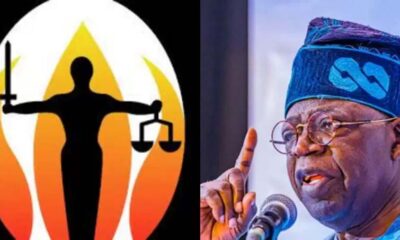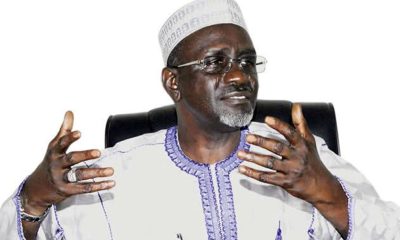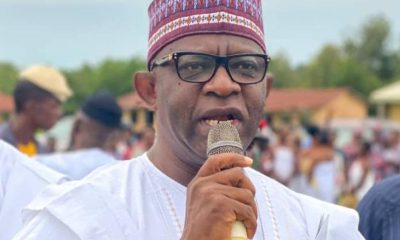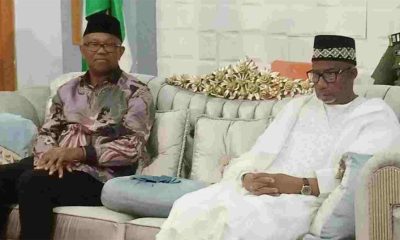Africa
Niger Coup: What options are available to Tinubu, ECOWAS?
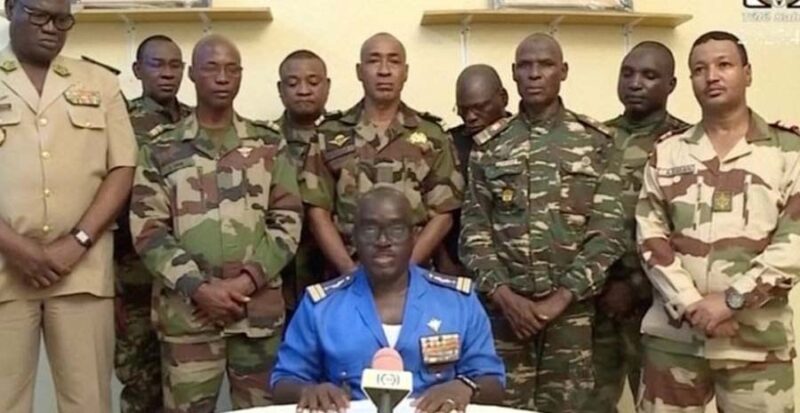
Niger Coup: What options are available to Tinubu, ECOWAS?
A news Analysis by Premium Times
As Nigeria’s President and ECOWAS Chairman Bola Tinubu prepares to host what may become a significant moment in the recent history of the West African region and his term as leader of the bloc, he is faced with a cocktail of options from which he must choose wisely.
On Sunday, leaders of ECOWAS will convene in Abuja for a special session at the request of Mr Tinubu to discuss the recent coup in Niger, the sixth in the sub-region since 2020.
ECOWAS condemned the coup with the chairperson promising that ECOWAS and the international community would do everything to defend democracy and ensure democratic governance continues to take firm root in the sub-region.
The coup in Niger has been widely condemned by the international community with the African Union (AU) giving the coup plotters 15 days to relinquish power However, locally in Niger, the coup has elicited mixed reactions as some, including the army, are in support of the presidential guards responsible for the rebellion and others against it.
Sunday’s session is expected to produce a roadmap on how to tackle the situation in Niger while also demonstrating the unacceptability of coups in the subregion as Mr Tinubu said in his first speech as leader of ECOWAS.
A source close to the Nigerian president but who does not have permission to speak to the press said ECOWAS ambassadors already made recommendations to the heads of state who will attend the meeting.
He told PREMIUM TIMES that decisions will be taken at the meeting on how to deal with the challenge in Niger.
What are the options available?
Although the ECOWAS Protocol on Democracy and Good Governance spells out steps Mr Tinubu can take or initiate in an attempt to restore constitutional rule in Niger, they are not without consequences.
“In the event that democracy is abruptly brought to an end by any means or where there is a massive violation of Human Rights in a Member State, ECOWAS may impose sanctions on the State concerned,” the protocol stipulates.
It goes further to state that the sanctions may take several forms, in increasing order of severity including refusal to support the candidates presented by the Member State concerned for elective posts in international organisations, refusal to organise ECOWAS meetings in the Member State concerned and suspension of the Member State concerned from all ECOWAS decision-making bodies.
“During the period of the suspension, the Member State concerned shall be obliged to pay its dues for the period. During the period of suspension, ECOWAS shall continue to monitor, encourage and support the efforts being made by the suspended Member State to return to normalcy and constitutional order.”
The above recommendations of the protocol may seem to be the magic wand needed to return Niger to status-quo but history has shown how ineffective the sanctions are. Mali and Burkina Faso are clear examples of where sanctions did not serve as a deterrent to coup plotters.
For Olubukola Adesina, a professor of political science at the University of Ibadan, Mr Tinubu has only two options to pick.
“It is either he talks tough or tries to use diplomacy,” she said, adding that if he talks tough, he may want to consider sanctions, travel bans or even an invasion but one cannot tell what the consequences of an invasion may be in this age and time.
On the other hand, Ms Adesina noted that ECOWAS can try to convince the coup plotters to return to democratic rule by organising elections as soon as possible especially because the coup plotters appear to have the support of the people.
“Because for a coup to be successful, it means that people are not averse to it. So the only thing we can do is to try to see how the coup leader can be convinced to convene a democratic election quickly,” she told PREMIUM TIMES.
PREMIUM TIMES reported that the coup plotters claimed that the coup was carried out due to the deteriorating security situation and the bad social and economic conditions in Niger. They have also received support from the army.
Ms Adesina, however, recommended that ECOWAS toes the line of diplomacy as oftentimes, sanctions are only symbolic.
“Coups are no longer fashionable. Democracy remains the way forward albeit fraught with its own challenges,” she added.
A former Nigerian Chief of Army Staff, Martin Agwai, expanded the options available to include diplomacy, negotiation and talks with external partners if they exist.
The retired military officer suggested that pressure from various political and economic blocs like the UN, EU, AU and ECOWAS could be deployed in removing the coup plotters legally. However, this can only work if the mutinous soldiers do not have the support of the people, he said.
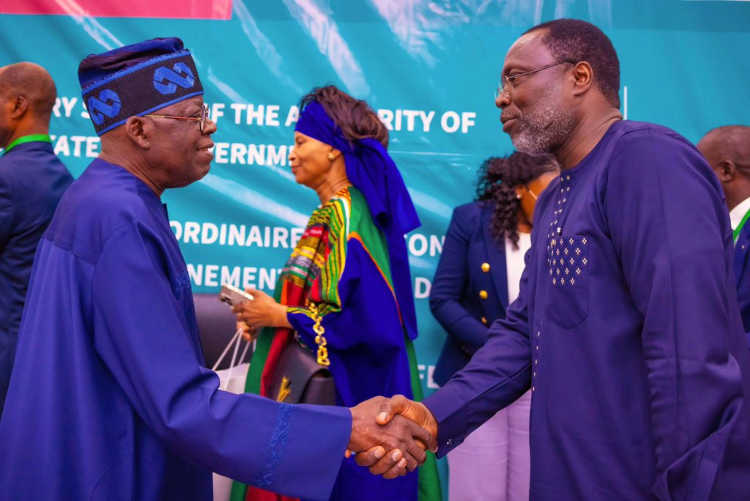
In the case of Niger, they do not only have the support of the people but also have the support of the army and so, diplomatic pressure may not work.
Another option available to Mr Tinubu according to Mr Agwai is to deploy the military to sweep out the coup plotters should they refuse to hand over power to the democratically elected president.
But Mr Agwai noted, that this will end as a bad choice as there will be loss of lives and property which may further plunge Niger into a worse situation. He added that ECOWAS would also have to ascertain if there are any external influences or interests in the coup and may consider talks.
For Gbemisola Animasawun, an associate professor at the Centre for Peace and Strategic Studies, University of Ilorin, sanctions are not efficient and should not be an option in Sunday’s talks.
“ECOWAS should negotiate with the coup leaders,” he said.
He noted that sanctions only impoverish the people and exclude the actual culprits. When this happens, the sanction becomes a tool in the hand of the coup plotters where they play on the emotions of the people, convincing them that the sanctioning power has ulterior motives aside from entrenching democracy.
This will most likely be the case in Niger given the basis upon which the coup plotters claimed to have ousted President Mohamed Bazoum and the support they have received so far, he said.
Anti-French sentiments have continued to grow strongly within French-speaking states in Africa and will be a convenient spin to use in order to rally Nigeriens against any sanctions.
Mr Animasawun noted that the coup in Niger is not entirely a surprise given the coup contagion, especially in Francophone Africa. However, to address Niger, Mr Tinubu has to choose between stability and democracy which may not necessarily be exclusive of each other but will require the president (Tinubu) to tread carefully, he said.
“Stability and Democracy because an unstable Niger has implications for Nigeria’s war on terrorism. Whatever happens in Niger has implications for our national security and geopolitical interest. It also has an implication for the personae of Tinubu as the president of Nigeria and the leader of ECOWAS,” he explained.
Contrary to the general assumption that democracy brings about stability, Mr Animasawun explained, it is not automatic because if democracy does not deliver and fails to be inclusive then there will be no stability.
“Not all undemocratic states are unstable and not all democratic states are stable,” he said, giving the example of Libya which was stable until Gaddafi was removed.
According to him, Libya was stable because it was a kind of government that met the needs of the people but for some freedoms that were curtailed. Its economic indices at the time however placed it above many economies in Africa.
“It is the push towards democracy that has made Libya now unstable,” Mr Animasawun said.
Additionally, Mr Tinubu must balance his role as the leader of ECOWAS and also as the president of Nigeria keeping in mind Nigeria’s geopolitical interest (security) not necessarily the type of government, he said.
When asked what the implication of choosing between stability and democracy will be, Mr Animasawun said while one will be realistic, the other will be symbolic.
“The realistic part is that if we go for stability, that would likely be at the expense of democracy which will take away from the symbolic position or value of President Tinubu as the leader of ECOWAS,” he explained.
A middle ground exists, he believes. It will be to find a reconciliation between stability and democracy which is quickly putting in place a transition plan as the coup leader cannot be forcefully removed as it may worsen an already bad case.
He noted that Mr Tinubu must take lessons on legitimacy and good governance from what is happening in Niger especially considering the sentiments around his own elections in Nigeria.
“One fundamental basis for successful mediation is the credentials of the mediator. If a mediator is faced with questions of credibility or legitimacy then he or she must tread cautiously,” Wilson Ijide, a retired colonel and lecturer at the Department of Psychology and Institute for Peace and Strategic Studies, University of Ibadan, said alluding to Mr Tinubu’s own challenges.
He said this crisis of legitimacy faced by Mr Tinubu will naturally affect the efficacy of the intervention by ECOWAS.
In spite of the foregoing, “the options available to Tinubu and ECOWAS ahead of Sunday’s meeting is to face reality and negotiate ways towards smooth handover to a democratically elected government within a feasible timetable,” Mr Ijide told PREMIUM TIMES, adding that there should be no grandstanding by ECOWAS on this.
Africa
Fuel hits N8,000/litre in Niger, country seeks help from Nigeria

Fuel hits N8,000/litre in Niger, country seeks help from Nigeria
With the fuel crisis bedevilling the Republic of Niger, some of its military officials have visited Abuja to seek support from Nigeria to tackle the shortage of Premium Motor Spirit in the country.
It was gathered that the delegation successfully got the approval for 300 trucks of fuel from the Nigerian government.
Trouble started for Niger -which has been reliant on a Chinese refinery – after the refinery was shut down due to some misunderstanding with the supplier.
This led to Niger turning to Nigeria for help to ameliorate the fuel shortage experienced by the country.
READ ALSO:
- Kano govt clarifies appeal court ruling on Sanusi’s reinstatement as emir
- NAF strikes kill notorious bandit kingpins, 20 others in Zamfara
- Chelsea beat Man City to win Women’s League Cup
Officials from the Nigerian government noted that the deal was approved with the hope of using it as a bargaining tool with Niger.
“We do not want to blow our trumpet. Rather, we want to use it as a bargaining chip for negotiation, as we continue to engage with them to bring them back to ECOWAS.
“Let them get more from us. I am confident that gradually they will come back to ECOWAS because they do not have enough resources to import food to sustain their citizens,” the official said while pleading anonymity.
Sources stated that fuel prices in Niger were hitting N8,000 per litre
However, some transborder businessmen have attributed the fuel scarcity in Niger to the lingering relationship between the country and Nigeria.
They noted that in some cross-border towns to Niger, fuel is being sold for between 1,200 CFA and N3,500 (N2,500 and N8,500).
Fuel hits N8,000/litre in Niger, country seeks help from Nigeria
Africa
ECOWAS activates standby force against insurgency
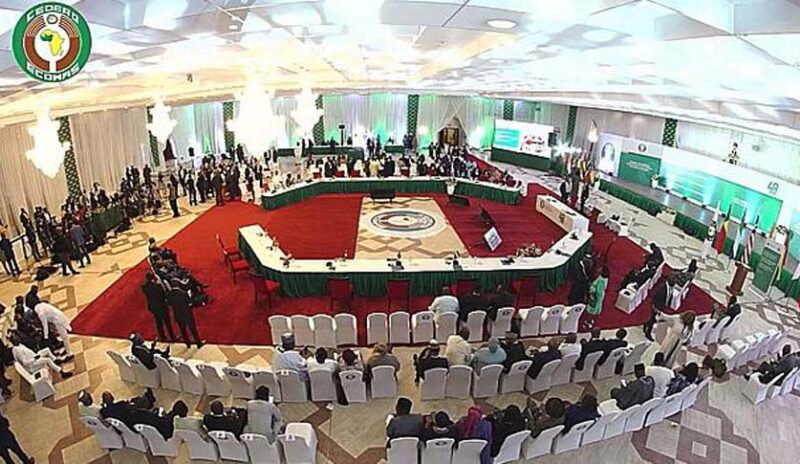
ECOWAS activates standby force against insurgency
The Economic Community of West African States (ECOWAS) has activated its Standby Force to curb terrorism and other transborder crimes in the subregion.
The Minister of Defence, Mohammed Badaru, who disclosed this in Abuja on Tuesday at the Forty-third ordinary meeting of ECOWAS Committee Chiefs of Defence Staff said the economic growth of the region is dependent on stable peace.
The minister added that there is a need for members of ECOWAS to close ranks against all forms of threats against the region.
On January 29, 2025, ECOWAS recognised the exit of three of its former members Burkina Faso, Mali, and Niger Republic upon the expiration of a one-year notice period.
READ ALSO:
- Supreme court dismisses appeal against Aiyedatiwa’s candidacy
- US set to present 30-day ceasefire offer to Russia
- BREAKING: House of Reps orders shutdown of porn websites nationwide
However, in “the spirit of regional solidarity”, ECOWAS asked its member countries to still recognise the national passports of the three exiting countries bearing the ECOWAS logo until further notice.
Their departure from the bloc has fractured the region and is leaving the ECOWAS grouping with an uncertain future.
The three junta-led countries formally notified ECOWAS of their plan for an “immediate” withdrawal in January 2024, citing the organisation’s excessive dependence on France in particular.
Paris has become the common enemy of the three juntas, which now favour partnerships with countries such as Russia, Turkey and Iran.
However, ECOWAS required one year’s notice for the departure to be effective — that deadline falls on January 29, 2025.
The three Sahelian countries have teamed up to form a separate confederation called the Alliance of Sahel States (AES).
ECOWAS activates standby force against insurgency
Africa
Policewoman arrested for murder of husband, female friend
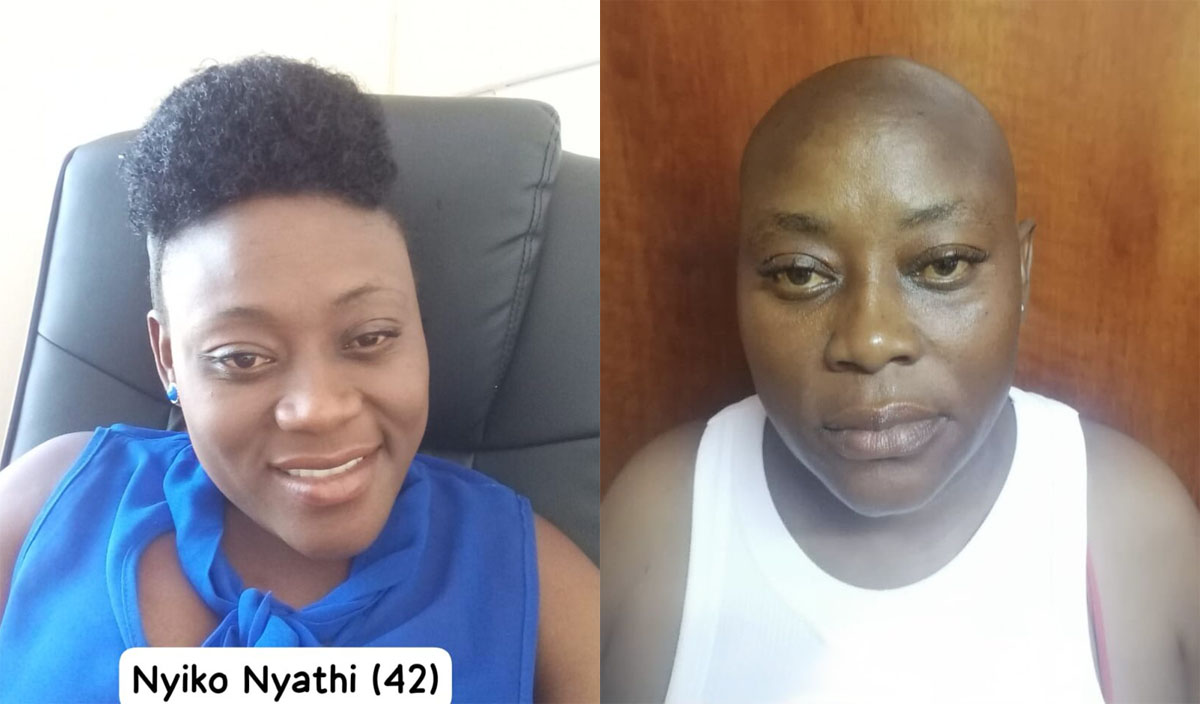
Policewoman arrested for murder of husband, female friend
A 42-year-old police sergeant, Nyiko Nyathi was arrested in connection with the kidnapping and brutal murder of her husband and his ‘female friend’ in Mpumalanga, South Africa.
The officer handed herself over to authorities at Bushbuckridge police station, according to Mpumalanga provincial police spokesperson, Brigadier Donald Mdhluli.
She appeared before the Bushbuckridge Magistrate’s Court on Monday, March 10, 2025, facing charges for the m8rder of her husband and another woman.
“According to information, in February 2024, Lawrence Alba Mashego, 44, was reportedly attacked by a group of armed men at his house in Boikhutsong Trust in Bushbuckridge. The armed men robbed him of his Toyota Quantum and Ford Escort, then he got kidnapped,” said Mdhluli.
READ ALSO:
- One of 5 applying for students loan is female – NELFUND
- APC council chairmanship aspirant hacked to death in Lagos
- Tinubu: Fuel subsidy removal aimed at securing future for unborn generations
“The two vehicles were reportedly used by the armed suspects as a mode of transport to reach a certain house in Zoeknog. At the house, they found Victoria Lebyane, 44, Mashego’s female friend, in possession of Mashego’s bank cards.”
Lebyane was then robbed of about R4,000 cash as well as some bank cards belonging to Mashego. After that, Mashego and Lebyane were m8rdered by the assailants.
“The matter was probed by the men and women in blue, where a thorough investigation was carried out, leading to the arrest of four suspects in connection with the incident. One of the suspects then pleaded guilty and was sentenced to 77 years imprisonment,” said Mdhluli.
As the police intensified their investigations, the police sergeant was implicated in the m8rder of her husband Mashego, and Lebyane.
Following the court appearance on Monday, the case was postponed to Wednesday, for a formal bail application.
Meanwhile, acting provincial commissioner of police in Mpumalanga, Major General Zeph Mkhwanazi, has welcomed Nyathi’s arrest.
He emphasised that the law will take its course on anyone suspected to have committed crime, regardless of their social status or position.
“The SAPS remains resolute to be intolerant to any criminality within our ranks,” said Mkhwanazi.
Policewoman arrested for murder of husband, female friend
-
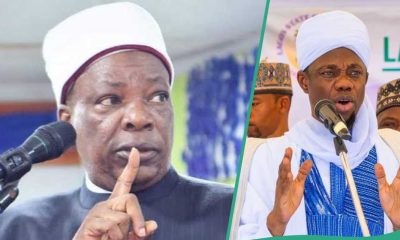
 metro1 day ago
metro1 day agoAttack on Mufty of Ilorin: Onikijipa Family Charges Stakeholders to Call Sheikh Habibullahi Al-Ilory to Order
-

 metro3 days ago
metro3 days agoCourt refers Ojukwu property case to alternative dispute resolution
-

 Health2 days ago
Health2 days agoNigerian doctor pioneers W’Africa first robotic prostate cancer surgery
-

 metro3 days ago
metro3 days agoCBN rejects Osun nomination of ex-Aregbesola’s commissioner as bank director
-
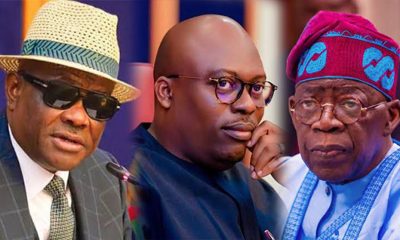
 metro3 days ago
metro3 days agoRivers: Presidency reveals security intelligence leading to emergency rule
-
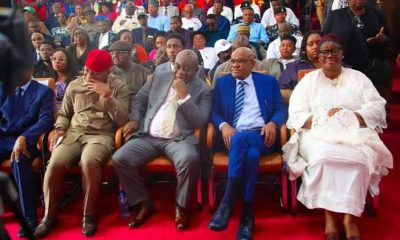
 metro2 days ago
metro2 days agoFubara: Supreme Court reacts to photo of Justice Agim with Wike
-
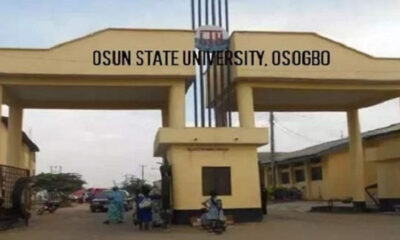
 metro2 days ago
metro2 days agoUNIOSUN mourns as 5 students die in auto crash
-
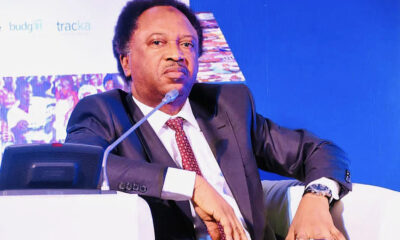
 metro3 days ago
metro3 days agoShehu Sani faults senators taking voice vote objection to media

